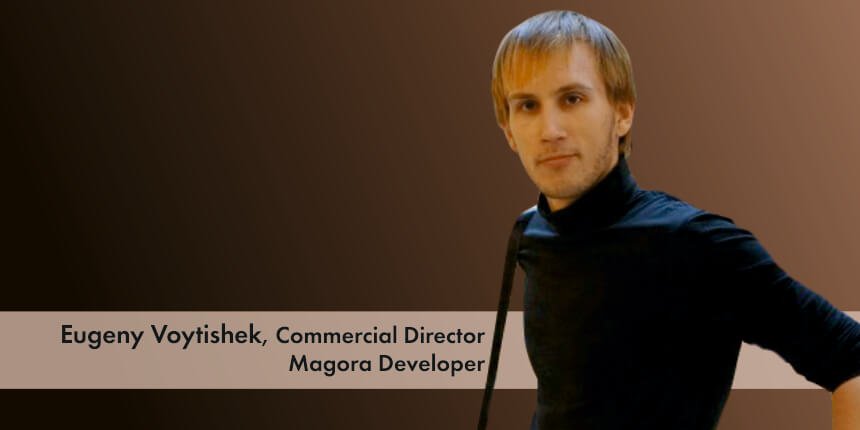My name is Eugeny Voytishek and I’m a commercial director for software development company Magora. In my work, I’ve had plenty of chances to see how some startups achieve major success while others turn to dust.
I’m going to share with you my observations on those company owners who’ve made it to the top. Firstly, all of them spent the lion’s share of their time on the crystallization of the great idea.
How to choose a working concept
Is there a problem nobody has ever managed to solve?
The first step: think back – have you ever been disappointed while in need of something?
Take, for example, the inventor of self-opening tins, who was upset with the lack of a can-opener at a picnic.
Or the paper cuffs you see on coffee cups in Starbucks and McDonalds. Without them you would have burned yourself drinking hot coffee on the go, right? The guy who realized this and introduced the cuffs became a billionaire.
Now it’s high time for inventions using AR/VR technologies.
Improve something that exists
There may be a solution to the problem but it’s too expensive, slow or uncomfortable to use. If so, make it better! Think of Coursera and other online education platforms. They managed to make high-level education affordable and popularise science with their online project.
Can you think about how to improve existing solutions with the help of image recognition, voice search, and virtual assistants?
Train your creativity
Another approach to inventing things is to train your creativity with a new way of doing something or by doing the same thing with the help of a new product.
A good example of such an approach is the Amazon book shop, which has become a world leader in e-commerce and now sells everything.
What about creating a virtual fitting room with 3D models of clothes? I suppose you’re late to the party with this invention but keep thinking!
Last resort: go to a crowdfunding platform and look at the most promising ideas. Interest expressed by a lot of people is a guarantee of market potential for such a product or service.
The app cases I’ve chosen are “Rent anything you want” and “Trade on Youtube”.
Test out your idea
Once you’ve come upon with an idea, test it.
Whilst being relevant and desirable, it should also include unique features that no other digital product on the market has.
Ask yourself these questions:
- Do people really need it?
- Do you provide the best solution?
- What is your unique selling advantage?
- Is the idea protected from repetition by the law, know-how or location?
Ask your friends and colleagues if the problem you’ve found bothers them and if they’re inclined to use your solution. It’s even easier to do so via social networks since you can make a survey and reach a wider target audience.
Assess the market
Understanding the market is necessary both in terms of knowing your competitors and of being able to predict revenues.
I would divide the stages of market assessment into 3 tech startup:
Sales prediction
Do a rough sales estimation by multiplying the average consumption by the number of potential users and decrease your amount based on the number of substitutes.
Market conditions
Once you’ve assessed how many people are likely to like your product or to use similar solutions offered by your competitors, it’s time to find out precisely what reasons affect their choice and to assess the number of potential loyal clients.Competitors
A very important stage of market analysis in the making of a competitor map. You need to know who’s number 1, 2 and 3 in your field, what their market shares are, what they offer and what you can do to turn their customers into your loyal clients. A great instrument to use is SWOT analysis, which reveals your competitors’ stronger and weaker points.
Go through this test to assess your readiness for the serious business of creating a tech startup.
Develop your app
The final stage of your tech project will be to test an MVP on real customers. Do this as soon as possible after having completed all the other stages.
However, you have to be ready to face the fact that things might not work out on the first attempt, or at least not sparkle as much as you expected. In this case, analyze what you did wrong, continue polishing your idea and try again.
Finally, the last step: develop your app. Luckily, at this point, professional developers like Magora have got your back.
About the Author
Eugeny Voytishek is the Commercial Director at Magora Developer. In this post, Eugeny shares his experience in how to start a winning tech startup in 2019.














